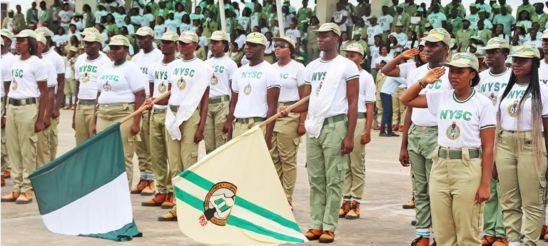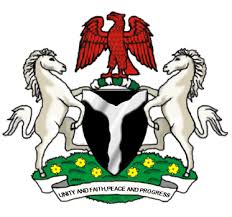 Harvard University this year turned down more than 95% of those who applied.
Harvard University this year turned down more than 95% of those who applied.
But what is a “fair” system for deciding who should be rejected and who should be the lucky few to get a place?
What should the successful 5% look like?
Should it just be those with the highest academic credentials? Or would it be fairer to ensure a more diverse ethnic and social mix?
And it’s a dispute that will be watched carefully by many other over-subscribed universities around the world.
Standard of nation’s education not falling – Okebukola
Okebukola made the assertion while speaking with the News Agency of Nigeria on the sidelines of the Eighth Convocation and honorary award of doctorate degree of Caleb University, Imota, Lagos.
He said the current NUC Executive Secretary, Prof. Abubakar Rasheed, was on a revatilisation mission to improve quality in the university system and enhance standards.
According to him, the standards turned out yearly by the Commission are richer and higher in terms of scope than the previous year.
Polytechnic lecturerers threatened to shut down the nation’s polytechnics anytime soon.
They have warned the government to order the National Board for Technical Education (NBTE) to stop intimidating its members into the Integrated Payroll and Personnel Information System (IPPIS) platform when their emoluments have not been secured.
The union is also accusing the government of not keeping faith with the memorandum of settlements signed with the union in 2017.
National Youth Service Corps (NYSC) has banned Benue State University and the University of Agriculture, Makurdi
The scheme placed a two-year ban on both schools following an alleged discovery of negligence and evidence of age manipulation.
However, in reaction, the Vice Chancellor of the Benue State University, Professor Moses Kembe, during a meeting with the Scheme pleaded for leniency.
Kembe had in the meeting which ended in a deadlock, maintained that the university management was not involved in age manipulation. He explained that the age limits were manipulated by the students themselves.
FG To Invest More In Health, Education In 2019 — Minister
The Minister of Health, Prof. Isaac Adewole, has assured Nigerians that the President Muhammadu Buhari’s administration would invest more on health and education in 2019.
The Minister gave the assurance in a statement issued by Boade Akinola, Director Media and Public Relations of the Ministry, on Sunday in Abuja.
According to Akinola, the Minister gave the assurance during a peer review meeting with Chief Medical Directors and Medical Director across the country.
“The meeting, was to enable the participants exchange ideas, share experiences and appreciate challenges confronting each facility in order to help government address them and if necessary capture them in the 2019 budget,” Akinola said.
Adewole said government would not only invest more money on health but also on education.
13.2 million Nigerian children now out-of-school –UBEC
The Universal Basic Education Commission has said that the population of Nigeria’s out-of-school children has increased from 10.5 million to at 13.2 million.
The UBEC Executive Secretary, Dr Hammid Bobboyi, stated this in Abuja on Thursday during a United Nations Children’s Fund briefing on out-of-school children.
Bobboyi, who was represented by the Director of Social Mobilisation, Bello Kaigara, said the 2015 Demographic Health Survey had confirmed the development.
No state in Nigeria can boast of free education – Soweto
He said this at the closing of 2018 ERC free holiday coaching lesson organized for students in Ajegunle, and held in Nawair U Deen Primary School, Arumoh street. At the events which saw gifts presented to overall best students in all the classes and that had the presence of Daggar Tolar , a renowned poet and former Nigerian Union of Teachers , NUT chairman Ifelodun- Ajeromi among other dignitaries , Soweto said that ,”
The government is being insincere and dishonest when they say they are providing free education under the education for all project that began over a decade. In Lagos state website, for instance, the said claim is made.
Children faced with Learning Challenges
In spite of the promulgation of section 8 of the National Policy on Education which states that children with special needs education should be attended to, many public and private educators are yet to fill in this gap. The policy describes special needs education in Nigeria as “a customized educational program that is designed to meet the unique needs of persons with special needs that the general education program cannot cater for”
Encourage study of Mathematics in varsities.
Calling on government to introduce a policy that would encourage young Nigerians to study Mathematics, Olayinka, who spoke during the 75th Interdisciplinary Discourse of the UI Postgraduate School, said that proper career counseling was necessary in secondary schools to guide and expose pupils to the opportunities available in studying the subject at university level.
The Guest Lecturer at the event and former President of the African Mathematics Union, Prof Aderemi Kuku, also called on the Federal Government to stop the brain drain in Mathematics, Science and Technology.
Rewards don’t improve school attendance
 It’s the back-to-school season – and many young people may be feeling reluctant about returning for the start of another academic year. Many schools there are deliberate attempts to boost attendance by giving rewards, school prizes and commendations to those who have the best records for not missing any lessons.
It’s the back-to-school season – and many young people may be feeling reluctant about returning for the start of another academic year. Many schools there are deliberate attempts to boost attendance by giving rewards, school prizes and commendations to those who have the best records for not missing any lessons.
But do such prizes really change behaviour?
According to a large-scale study of secondary school students in California in the US, awards for good school attendance seem to make no significant difference – and in some circumstances, could make absenteeism worse.
The study, published by the Harvard Kennedy School of Government in Massachusetts, examined the effect of rewards schemes on more than 15,000 students in 14 school districts in California.
‘Demotivating’
Researchers, including Carly Robinson, found that if prizes were promised in advance, it made no difference to whether pupils attended.
If the rewards were retrospective, in recognition of high levels of attendance, it seemed to have a negative impact on the winners’ future school attendance.
Full article: https://www.bbc.com/news/business-45326487






 Parents whose children are faced with learning challenges can now heave a sigh of relief as special school for special needs education berths in Lagos.
Parents whose children are faced with learning challenges can now heave a sigh of relief as special school for special needs education berths in Lagos.